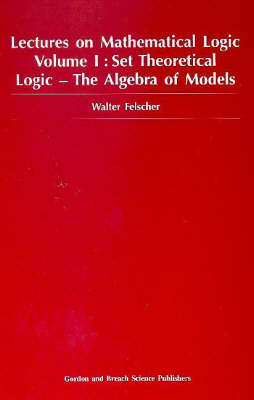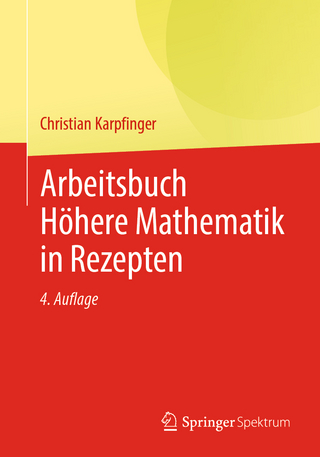
Set Theoretical Logic-The Algebra of Models
Seiten
2000
Taylor & Francis Ltd (Verlag)
978-90-5699-266-8 (ISBN)
Taylor & Francis Ltd (Verlag)
978-90-5699-266-8 (ISBN)
- Titel ist leider vergriffen;
keine Neuauflage - Artikel merken
An introduction to mathematical logic in which all the usual topics are presented: compactness and axiomatizability of semantical consequence, Lowenheim-Skolem-Tarski theorems, prenex and other normal forms, characterizations of elementary classes with the help of ultraproducts.
This is an introduction to mathematical logic in which all the usual topics are presented: compactness and axiomatizability of semantical consequence, Löwenheim-Skolem-Tarski theorems, prenex and other normal forms, and characterizations of elementary classes with the help of ultraproducts. Logic is based exclusively on semantics: truth and satisfiability of formulas in structures are the basic notions. The methods are algebraic in the sense that notions such as homomorphisms and congruence relations are applied throughout in order to gain new insights. These concepts are developed and can be viewed as a first course on universal algebra. The approach to algorithms generating semantical consequences is algebraic as well: for equations in algebras, for propositional formulas, for open formulas of predicate logic, and for the formulas of quantifier logic. The structural description of logical consequence is a straightforward extension of that of equational consequence, as long as Boolean valued propositions and Boolean valued structures are considered; the reduction of the classical 2-valued case then depends on the Boolean prime ideal theorem.
This is an introduction to mathematical logic in which all the usual topics are presented: compactness and axiomatizability of semantical consequence, Löwenheim-Skolem-Tarski theorems, prenex and other normal forms, and characterizations of elementary classes with the help of ultraproducts. Logic is based exclusively on semantics: truth and satisfiability of formulas in structures are the basic notions. The methods are algebraic in the sense that notions such as homomorphisms and congruence relations are applied throughout in order to gain new insights. These concepts are developed and can be viewed as a first course on universal algebra. The approach to algorithms generating semantical consequences is algebraic as well: for equations in algebras, for propositional formulas, for open formulas of predicate logic, and for the formulas of quantifier logic. The structural description of logical consequence is a straightforward extension of that of equational consequence, as long as Boolean valued propositions and Boolean valued structures are considered; the reduction of the classical 2-valued case then depends on the Boolean prime ideal theorem.
1. Lattices and Boolean Algebras 2. Algebras, Homomorphisms and Subalgebras 3. Separation Theorems for Boolean Algebras 4. Filters, Ideals and More on (PIA) 5. Term Algebras 6. The Logic of Equations 7. Free Algebras and Equational Classes 8. Equational Equivalences and Clones 9. Polynomials and Normal Forms 10. Classical Propositional Logic 11. Open Predicate Logic 12. Quantifier Logic: Languages and Structures 13. Substitution 14. Henkin Constants, Skolem Functions and Normal Forms 15. Algorithms for Consequence 16. Lowenheim-Skolem Theorems 17. Elementary Classes
| Erscheint lt. Verlag | 30.5.2000 |
|---|---|
| Verlagsort | London |
| Sprache | englisch |
| Maße | 156 x 235 mm |
| Gewicht | 658 g |
| Themenwelt | Mathematik / Informatik ► Mathematik ► Algebra |
| Mathematik / Informatik ► Mathematik ► Logik / Mengenlehre | |
| ISBN-10 | 90-5699-266-X / 905699266X |
| ISBN-13 | 978-90-5699-266-8 / 9789056992668 |
| Zustand | Neuware |
| Haben Sie eine Frage zum Produkt? |
Mehr entdecken
aus dem Bereich
aus dem Bereich
Buch | Softcover (2022)
Springer Spektrum (Verlag)
CHF 55,95


